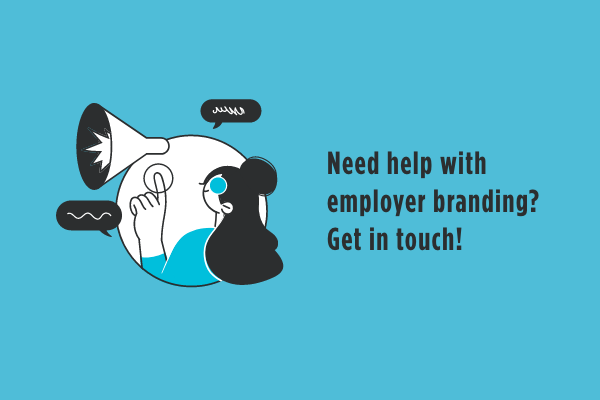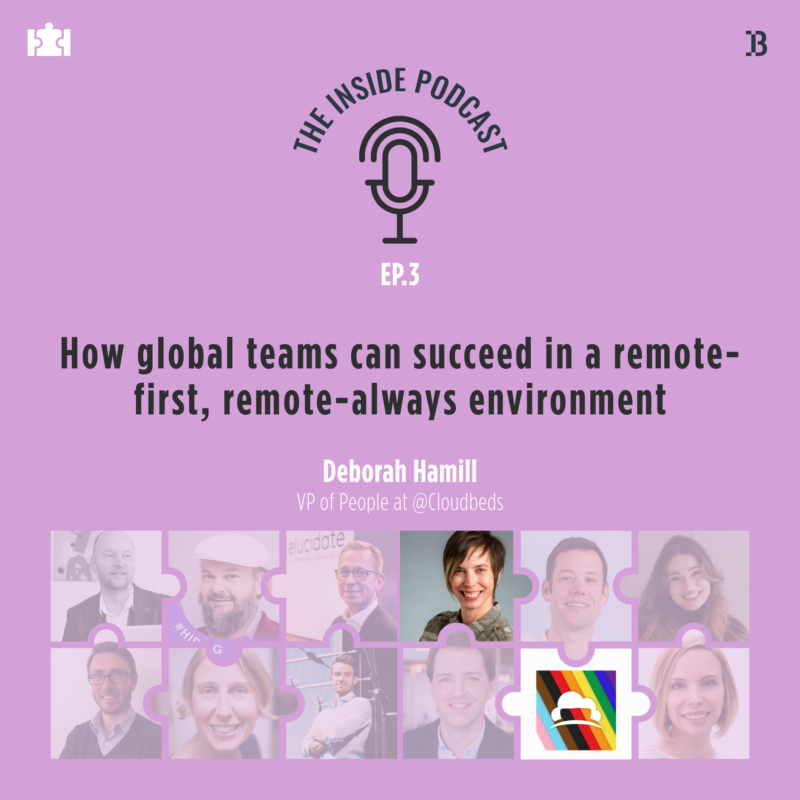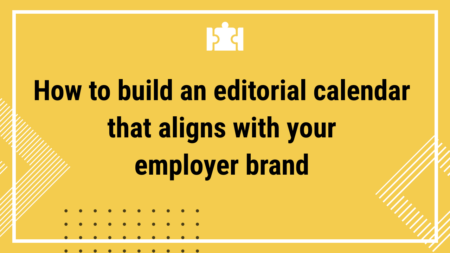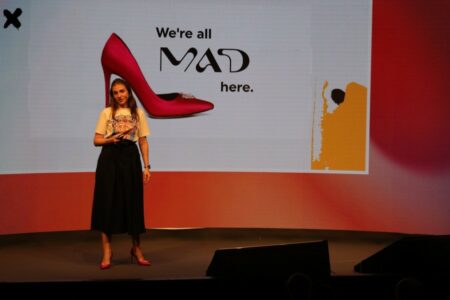Overview
In the 3rd episode of our 5th season, we spoke with Deborah Hamill, VP of People at Cloudbeds; a company that truly believes that people can work together efficiently regardless of location. Their mantra: #RemoteFirst – #RemoteAlways, an approach rooted in the company’s values from the very beginning. Cloudbeds is living proof that having shared values can grow a company at 700+ remote employees.
We talked with Deborah about managing diverse global teams and the implications of employer branding in the recruitment process. Also, we tackled the issue of HR’s biggest challenge: top talent vs. the hybrid workforce.
#EmployerBranding: The Inside Podcast on #Spotify. Check out the full episode in the comment section below. Enjoy listening!
What you’ll learn by listening
- Skills every HR manager should have
- How to develop hybrid-ready or remote-ready skills as an HR leader
- Insights into managing global teams remotely
- Kaizen, a business philosophy of continuous improvement
- HR’s biggest challenge: finding top talent or managing the hybrid workforce?
- Sustained improvements: the key to an evolutionary path
- Diversity & inclusion: tips for managing diverse global teams
- How employer branding reflects in the recruitment process
About Cloudbeds
Founded in 2012, Cloudbeds is the hospitality industry’s fastest-growing technology partner, serving a global customer base of thousands of properties across 157 countries. Its award-winning Cloudbeds Hospitality Platform seamlessly combines operations, revenue, distribution, and growth marketing tools with a marketplace of third-party integrations to help hoteliers and hosts grow revenue, streamline operations, and deliver memorable guest experiences. Cloudbeds was named No. 1 PMS and No. 1 Hotel Management System by Hotel Tech Report in 2022, Best PMS and Best Channel Manager by the World Travel Tech Awards in 2021, and has been recognized by Deloitte’s Technology Fast 500 in 2021.
Podcast link
Podcast transcription – Employer Branding T.I.P S05Ep.3
Georgiana: Hello, everybody! This is Georgiana with a new episode of Employer Branding: The Inside Podcast. My guest for today is Deborah Hamill from the United States. And Deborah works for a data company that’s exclusively remote. Am I correct? Anyway, Deborah, welcome to my invitation, please let us know what you do at Cloudbeds. And what the company does. I mean, I know you’re a vice president of people, but I want to know everything about your role, your daily activities, as much as you can.
Deborah Hamill: Well, Cloudbeds is the hospitality industry’s fastest-growing technology partner. And we serve a global customer base with 1000s of properties. We’re across over 157 countries. And our platform is award-winning because it seamlessly combines operations, revenue distribution, growth, marketing tools, and also third-party integrations. And what it does is it helps hoteliers and hosts grow revenue. It helps them streamline operations and deliver memorable guest experiences. And it’s really exciting because, you know, I mentioned some of the awards, you know, we were named number one CMS; we were named number one hotel management system by hotel tech report in 2022. And we are also named the best CMS and best channel manager by the world travel tech awards in 2021. So we are really, really proud of what we do, and how we’ve grown.
Georgiana: And you guys have been working fully remote from the very beginning if I’m correct, or has there been a switch?
Deborah Hamill: No, no switch. We were remote-first remote, remote-always.
Georgiana: Unbelievable! I’m sure we’ll get to that topic in just a little bit. You know, this is primarily human resources, or let’s say an employer branding podcast. And whenever I talk to someone who manages people, who’s tightly connected to human resources, I want to know because our audience can really use the simple how can HR people provide support to employees? And what would you say are the most important skills of an HR manager?
Deborah Hamill: Yeah, well, I think helping ensure that organizations have the right talent in the right place at the right time, is the most important role that HR plays. And when I think about the three most important skills of an HR manager, the first thing that I would highlight is that it’s our role to help create the best employee experience. And a great employee experience means many things.
But ultimately, it actually means for the business better bottom line, because what we know for sure, is that if people are intellectually and emotionally fulfilled, they are likely to produce more and stay longer, and turnover is a huge cost to a company. The second thing I would highlight is that HR is really a driver for the company to embrace change. Culture change should be business-led and driven from the top. And companies change, they always do. Things are always evolving. And so, HR should be a leader and talk about how awesome this is. And really showcasing it as something that is valued evolution is good.
Companies that resist change are kind of doomed to fail. And the third thing I would highlight is that maybe you’ve seen those little cartoons or there used to be cartoons where there’d be like an angel and a devil on each shoulder whispering into somebody’s ears. I don’t want to say that HR is the angel or the devil but the nuance of the role of HR is to whisper in the ears of leadership and gently guide. That is that as a key skill that you have – to influence leadership. Because what we know for sure is that leaders matter. People’s managers and that experience is a huge contributor to people either staying or going and you know, leaders lead awake. So whatever actions you take as a leader, that’s going to leave a turn behind you. And you need to be aware of that, and make sure that you are challenging your people, but also guiding them as well and keeping them feeling emotionally safe.
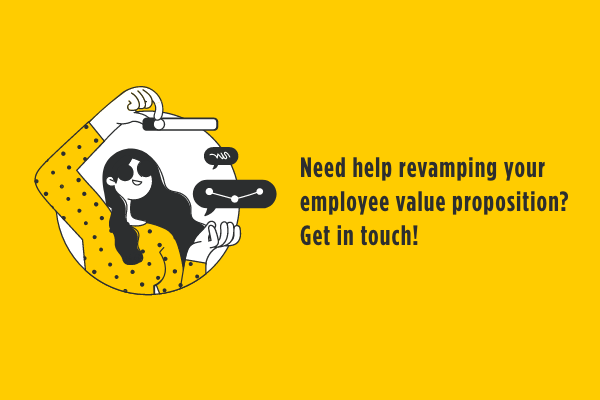
Georgiana: How does Employer Branding manage to strengthen the company culture especially when you’re a fully remote company?
Deborah Hamill: Oh, it is absolutely critical. You know, HR managers are an investor in culture. And a brand culture is how a company’s employees live out the values and missions of its organization. And so it’s important that management embodies the values and mission of the company, and model the behavior that we expect from our employees. And so a positive employee brand says, you know, we’re a great place to work, we’re so great that you’re gonna want to recruit your family and friends to work here. And so it affects recruitment, it affects retention, and it affects engagement. And it’s really crucial to the success of any company.
Georgiana: We’re nowadays all familiar with the hybrid workforce model. But how do you develop hybrid-ready or remote-ready skills as an HR leader, if I can put it that way?
Deborah Hamill: Cloudbeds has always operated as remote first, for most remote always. And, you know, it’s given us some advantage. Because when the pandemic hit, we didn’t have to retrain how we do things at Cloudbeds. Whereas for other companies, it prompted massive, massive shifts. And so there are two things that I would highlight that really folks need to think about.
The first thing is tools. So in order to be hybrid-ready, you need the tools to be successful. And if you, as a leader, aren’t thinking about the tools and the platforms you utilize to stay connected and collaborate in this virtual world, you really should. The second thing I would say is planning. You’re gonna need to budget well because, in the hybrid model, we still know that there is incredible importance to face-to-face interaction. And you know, we need to be able to support that.
But that comes at a cost. And so without some great budget planning, that might be an item that is cut, and it is so important that it shouldn’t be and so be sure to get with finance and plan ahead of time that you can have these moments of face to face gatherings. Because I can’t stress the importance enough in a hybrid space, that those gatherings, breaking bread together, and mutual laughter and volumes, people that emotionally committed people, and you want that. And so you really need to have the tools for collaboration, well thought, you know, Slack’s a great one, you know, video meetings, etc. And you need to also have some fiscal planning to ensure that you can get together.
Georgiana: If I’m correct, Cloudbeds has over 700 global employees. To me, this is just amazing how you guys can be so successful. And actually, I didn’t tell you this. But the reason I was so keen on talking to someone from Cloudbeds is that I found out you guys are remote only even before the pandemic so I said how do they do it? How does one manage global teams? How does it happen? I know that you guys all meet once a year, if I understood correctly, at some point. But otherwise, how do you do it? How do you stay connected?
Deborah Hamill: Well, it’s extremely top of mind for our leadership team. While the hybrid workforce is becoming the norm, some activities and sentiment are hard to translate over Slack or Zoom. We have the tools that on a day-to-day basis help us communicate and collaborate and celebrate. For Cloudbeds, being remote-first, remote-always doesn’t mean that we don’t get together. We know the value of those face-to-face interactions. And the interesting thing about Cloudbeds is that these interactions are happening, both company sponsored – we just had a really great gathering of leadership in San Diego, California, in the United States.
But they’re also happening organically. We have a gathering that’s coming up in Medellín, Colombia. It was started by the employees themselves. They said, Hey, we miss each other, let’s get together and people are traveling from all over the globe, you know, essentially for a happy hour, which sounds wild, but they want to see each other. And so you know, we stay connected by recognizing the value of both connecting online but also making room for those face-to-face interactions.
Georgiana: And would you agree with the statement that at the moment managing the hybrid workforce is one of the biggest challenges for the people of HR?
Deborah Hamill: Even though that’s the topic of this podcast, I don’t honestly know. And the reason I say that is yes, it’s important. But I think if you see that as your greatest challenge right now, what I would say is that you’re already behind. We’ve already been there for a year, you know, the pandemic has hit companies already thinking about this. And so, when I think about the main challenge now, I actually think it’s talent, particularly in the tech world. So we’ve had a massive shortage of talent in engineering. If you actually look at the numbers, it’s only predicted to get worse. And so, therefore, with a shortage of this critical talent for the success of tech companies, how do you win the talent pool that is out there? That is where it comes down to your branding and culture. And yes, the flexibility of making sure that you can cater to what people want, in some cases, people want that office environment. In other cases, they want the hybrid and in other cases, they want that 100% at home. And so, your skills to recruit that talent pool is the big challenge that I think folks should be thinking about.
Georgiana: And I think the funny thing if I can say so about it, is that it’s equally challenging in Europe as it is in the States, as it is in Australia. At the moment, it’s really everywhere. It’s become unbelievably difficult to attract and retain people. I think I took a look at your website, and actually, a loved one of the core values for Cloudbeds, Kaizen. You know, it drew my attention, because I want to know more about it. Could you tell me a little bit more about what it means and how it connects to your business model into the company values?
Deborah Hamill: Yeah, absolutely. So, Albert Einstein actually said that compounding is the greatest mathematical discovery of all time. And that ties in here because what Kaizen means is “always improving”. And so, you know, earlier, you had asked about the three most important skills of an HR leader. And I mentioned, embracing agility and change. And that really ties into Kaizen because an Infinite Journey always starts with the first step.
And so, if you make small strategic steps, and continuous improvements to yourself, your teams will always evolve. And you’ll naturally be able to embrace change because you’re always improving. And the way Cloudbeds embodies that is we really are always working to better ourselves, which then consequently helps the team. We’re investing in development and making constant improvements. And we get satisfaction from growth and taking constructive feedback well.
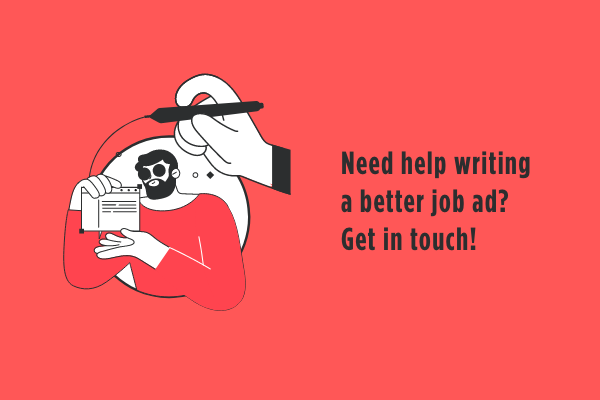
Georgiana: Okay. I’ve seen on your LinkedIn profile that you have a ton of experience in HR. And I’ve also seen that you’ve been with Cloudbeds for about five months. I’m wondering, what is it that you like most about the work environment, about the remote-only work environment? And how is it different from the other companies you’ve been with?
Deborah Hamill: What I love about Cloudbeds is the inertia and the excitement. So this may be a little overly reductive, but for explanation’s sake, I’ll say that startups oftentimes go through three phases of growth, you know, the first phase is like, where there’s an idea, and people are living on a hope and a dream. And it’s a lot of grid because you’re building, you’re constantly looking for investors. And it’s tough, it’s a lot of hard work. And then stage two is where you kind of get some big funding in, where suddenly you’re in this rapid scaling model. And then stage three oftentimes even posts IPO, you’re just like this enterprise machine. Things are built and things are going smoothly.
Cloudbeds is in stage two. And for me, that’s the good stuff. It’s the most exciting phase, the phase of building and rapid growth is what I love. It’s where I’ll always be. And so what I love about Cloudbeds, and how it’s different is when we think about our model, one of the things that’s different here is how we collaborate. So there’s a huge commitment to taking ideas through as a group. And I’ll give you an example. The director reports to the CEO and CFO. We have regular meetings, and one of the things we do is two-pagers, an idea that was actually started by Amazon.
But the idea is that you, as a leader, write a two page essay, in essence where you try and convince your other team members of something. And then they come in and they make comments and you have just a really awesome discussion. And what that discussion produces is even better output. What I love about Cloudbeds is the excitement, the commitment to ideas and collaboration and how we come together.
Georgiana: Well, okay. Since diversity and inclusion is a very popular topic nowadays, especially in Berlin, where we’re not very strong with it, I wanted to ask you, Deborah, what would be three tips for managing diverse global teams?
Deborah Hamill: I think that’s a really great question very top of mind. I think the first is communication and transparency. No one likes to feel out of the loop or caught off guard. And so when you’re thinking about a diverse global team, you have to think about asynchronous updates. For myself, I can say that I often drop video updates and Slack.
That way, my team members can view it and I’ll give my thoughts for the week, and make announcements on what’s coming to ensure that the entire team is informed of what’s happening, and the status of the new projects or announcements that are going on. The second thing, I think that’s really important for managing diverse global teams is fun. You know, if you look at that old office model, what happened naturally, it was hearing about people’s weekend sharing laughs, inside jokes, perhaps there’s a game over lunch, a card game or something, a board game.
But when we’re in Zoom, somehow, that oftentimes gets put aside. So what happens is people have to scream fatigue, so they’ve become the drive to just get to it, so work gets delved into right away. I think as a leader, you have to drive that connection piece and be the example, allow some chitchat before starting the meeting, and have a separate meeting. I would say at least quarterly, just for fun, just for laughs. There are tons of online games and things that you can do. And the third thing I would say is just cultural and timezone respect.
So, as an example, one of the things that Cloudbeds has is choose your own holidays. And so that becomes a huge cultural thing because you can’t be a Christian-centric, US-centric, you know, and always make people come to you. “Choose your own holidays” allows people to say what’s important to them. It doesn’t have to be Christmas. Perhaps it’s for everybody. Perhaps it’s Kwanzaa, it’s whatever matters to that individual. And so that is a huge piece. And timezone respect to oftentimes what I see is a peril is if a company says, let’s say their headquarters in the United States. What will happen is they’ll hire globally because they need the talent. But then they always make those individuals join their timezone, which is exhausting. Don’t be US-centric, rotate things. Rotate the time of meetings. And also when you can, do things asynchronously, we can recruit, record videos, we can record presentations, and then thread on a channel, a place to ask questions. So it takes some extra thought and creativity. But in that way, you’re not overburdening one part of the team.
Georgiana: As we’re approaching the end of this episode, I’m going to be repeating myself sort of with the last question, but I’d like to know more concretely, how does Employer Branding happen at Cloudbeds? I’m really curious.
Deborah Hamill: Well, a lot happens through our values. And it’s talked about often, I think, to do branding, well, you have to thread it through constantly. It has to be in your meetings, it has to be embodied by the leadership, it has to be in the words, it has to be even in how you evaluate candidates. And so how we do it, it’s a constant here. And it’s referred to often.
Georgiana: I think you’re right in saying that it’s extremely visible in the way we recruit people because so far in what I’ve seen in Europe, and Berlin and Romania, where I come from, and where I was able to analyze things is that it’s done in a very sequential, way. It’s not realistic, and you can see it therefore the company suffers in the end and the business model has not to suffer because of it. Well, thank you so much, Deborah, for the great discussion we had today. I wish you the best of luck.
Deborah Hamill: Excellent. Well, thank you so much. I really enjoyed it.
This was Employer Branding: The Inside Podcast. You can find our podcasts on Spotify on Apple podcasts and content on employer branding-related things on employerbranding.tech. Until the next time, stay tuned.
